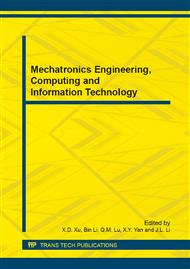p.3822
p.3827
p.3831
p.3835
p.3839
p.3844
p.3849
p.3852
p.3856
A Variable Mode QR Decomposition Adaptive Filtering Algorithm for Acoustic Echo Cancellation
Abstract:
This paper studies a new QR decomposition adaptive filtering algorithm for acoustic echo cancellation (AEC). Based on the p-TA-QR-LS algorithm [1] and an efficient voice activity detection technique, the proposed algorithm can distinguish the significant and insignificant input data periods. The resultant variable mode p-TA-QR-LS algorithm can work between two modes (p=1and N) and is thus suitable for AEC application where reusing significant input data can enhance convergence and the computation cost can be saved when the input is relatively weak.
Info:
Periodical:
Pages:
3839-3843
Citation:
Online since:
May 2014
Price:
Сopyright:
© 2014 Trans Tech Publications Ltd. All Rights Reserved
Share:
Citation:


